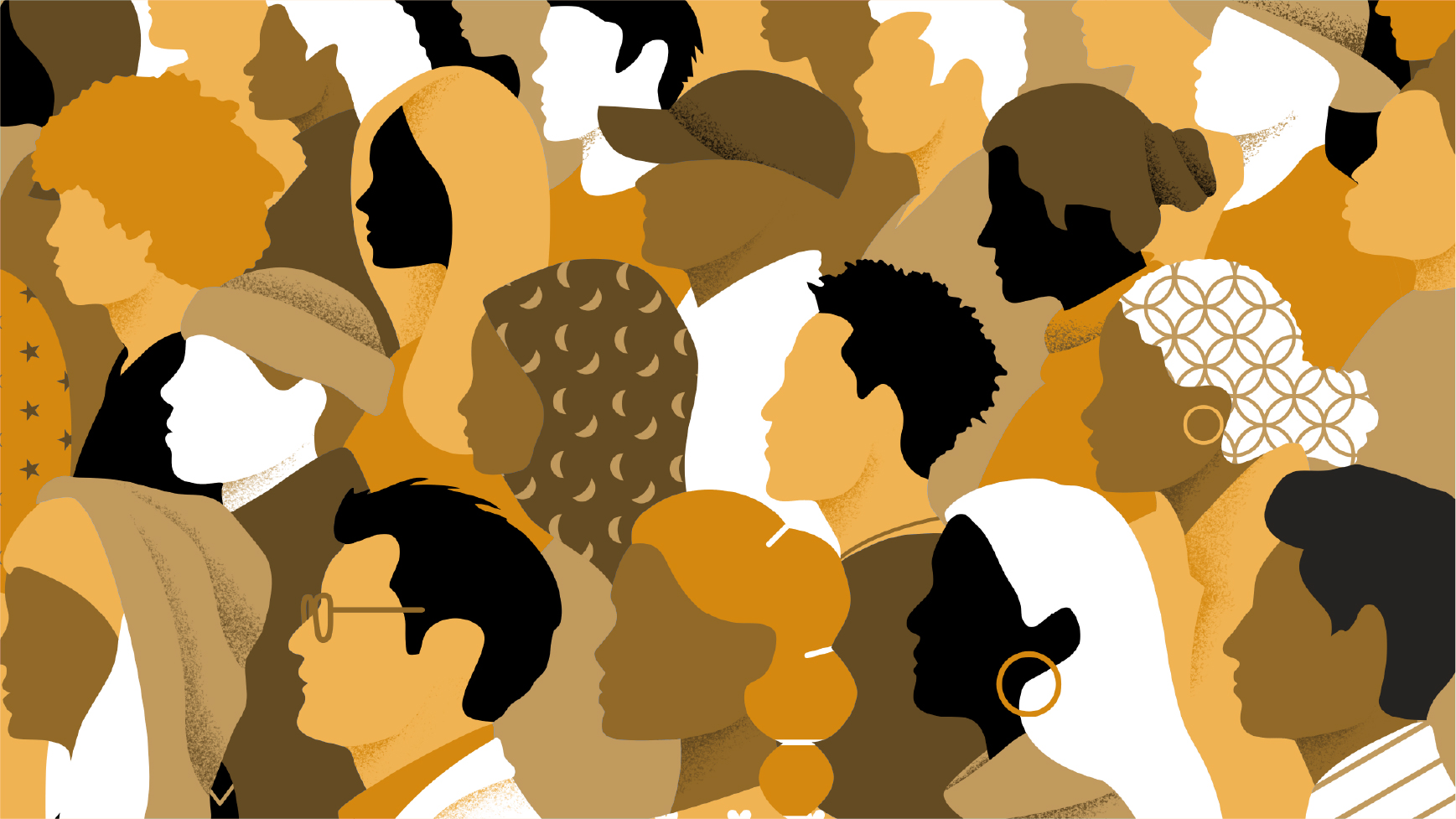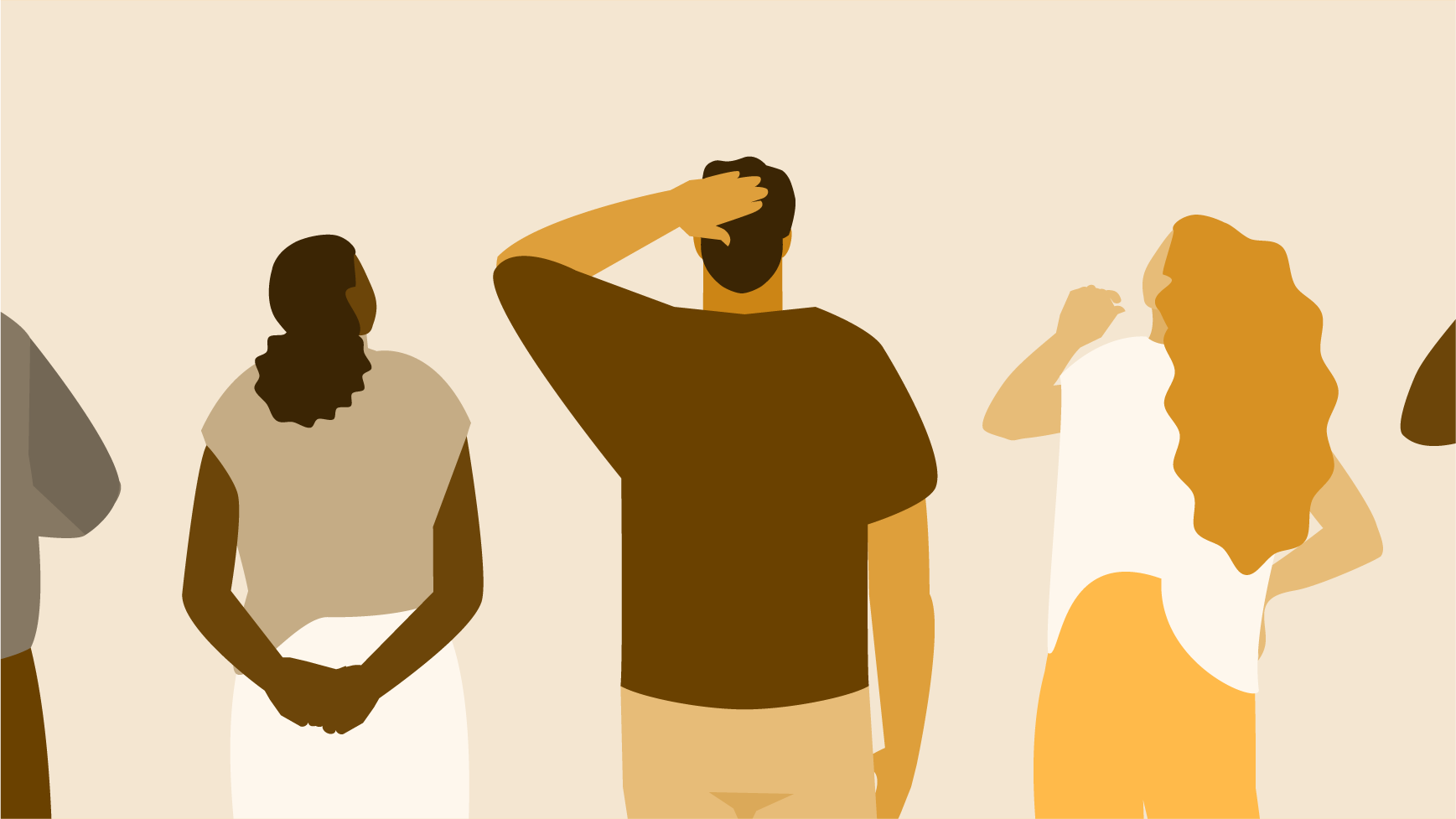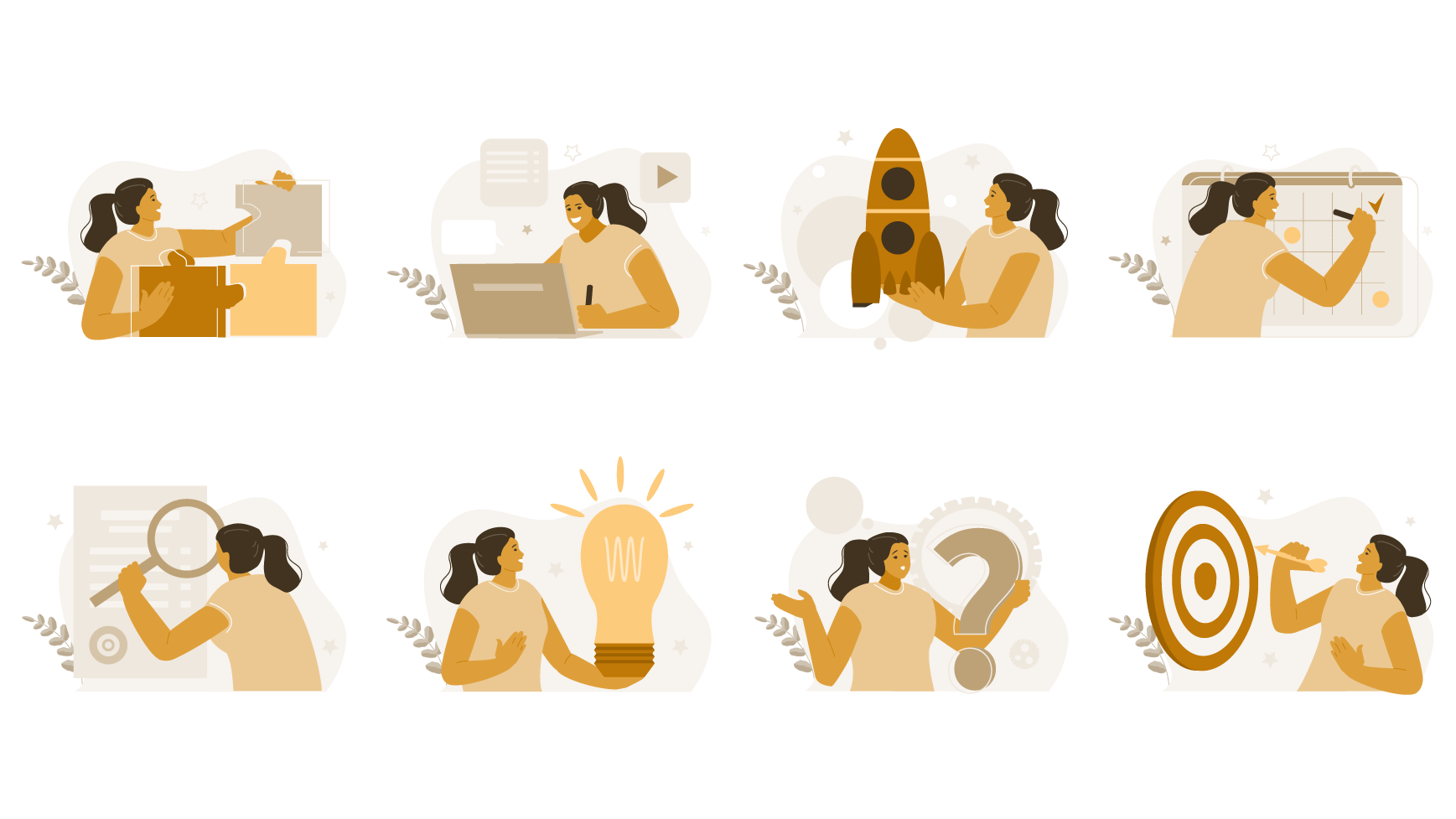Making a journey – a guide for students
Go to the guide for supporting students- Getting started
- Telling your story
- A mindful approach
- A retrospective approach
- A skills-focused approach
- Looking back on your journey
- A self-compassion lens
- A growth mindset lens
- Values lens
- Finally

Getting started
Welcome to Our Journey! We hope you enjoy logging your experiences, and that this guidance can help you get the best from creating a journey.
When you first get started, you might like to think about what you want to get from using Our Journey. You might be interested in creating a visual log of your journey to date, creating a mapped-out journey that you can share with others, or logging reflect on your experiences as you go, as a storytelling process. It’s fine if you don’t have fixed ideas yet, or if your ideas change – give it a try and see what happens.
If you want to use Our Journey regularly, it can help if you save it as a bookmark to your home screen, and set yourself regular reminders. You could set yourself a target of a certain number of cards per week or per month, or if you have a group host or mentor they may agree a target with you. However, this is very much up to you.
You may also like to think about the kinds of events you record, and some general principles on how you reflect on them. At Our Journey, we strongly support a self-compassion approach, where you treat yourself with self-kindness instead of self-judgment, and take a balanced approach to how you tell your story. Feel free to use other resources in conjunction with Our Journey to help you reflect in a self-compassionate way; there are many apps and websites on mindfulness, self-compassion and meditation you could try.
In the sections that follow, we’ll talk through some approaches to telling your story and on reflecting on your journey. These are suggestions you can try, but do feel free to create your own approach. No two journeys are the same, and no two users use Our Journey in the same way. So be open with yourself, approach it with curiosity and give it a try.
Back to top
Telling your story
If you’re not sure what to log in your journey, you might like to try these three approaches. You don’t have to commit to one, you can mix and match as you like.
A mindful approach
A mindful approach involves logging your journey as you go, reflecting on the things that happen to you and how you feel about them. You can log small things as well as big things; for example, you could log:
- Things that made you feel happy, proud, satisfied or positive
- Things that made you feel angry, scared, insecure or negative
- Your favourite or least favourite thing of the day/week
- Things you’ve read, watched or listened to that had an impact on you (you can include a link in your card)
- Feedback or comments you’ve received from people, both positive and constructive
As you go, don’t forget to log positive experiences. It can be very useful to vent over negative experiences in Our Journey, but when you read back over your journey, it’s more enjoyable if your journey has a good balance between positive and negative.
A retrospective approach
You might like to look back over past experiences and log them as a journey. In which case, you might like to simply log the events that stand out in your mind, or you might want to think about high points, low points and turning points you’ve experienced.
- High points might be moments of happiness, pride or achievement
- Low points could be struggles you’ve experienced, or times you’ve felt hopeless, blue or in need of a change
- Turning points are moments when things changed for you in some way; they may be big or small, they may be decisions you made or things that happened to you, and they may relate to a change in your confidence, circumstances or life direction
This approach can be useful to help you make sense of past events, or to help you chart your experiences, i.e. where you’ve been and where you’re going. It can be a nice way to see how far you’ve come, or to log your achievements and growth. It can also be useful to share with people, maybe to help a mentor understand your experiences, to motivate peers by sharing your own experiences, or by showcasing aspects of your journey for an assignment or portfolio.
A skills-focused approach
You might like to use Our Journey as a way to record new skills you’re gaining, either in education or more broadly. This can be helpful if you’re considering entering the job market or a career change, or simply want to build confidence in your abilities, as it can give you a useful list of examples of different skills you have gained and applied.
Write about times you:
- Solved a problem
- Practised or increased your skills in writing or numeracy
- Used your initiative
- Did something relating to your chosen career field or an area of interest
- Helped or supported someone
- Had a challenge in communicating something
- Worked with other people
- Handled a difficult situation
- Practiced a new digital skill
- Achieved something
Record what happened, what went well and what you might do differently next time. As you do this, it will build a story of the skills and capabilities you are gaining as you progress.
Back to top
Looking back on your journey
Once you have some cards in your journey, it is worth taking time to look back over them and reflect on what happened and how things have changed for you.
There are different ways you can look back over your journey, or different ‘lenses’ you can reflect through. You might want to consider a self-compassionate approach, a values-based approach or a growth mindset approach.
A self-compassion lens
As you look back over your journey, you may be tempted to dwell on negative experiences, circumstances or regrets. In these cases, it’s important to view your experiences with self-compassion. According to Neff, self-compassion involves:
“Instead of mercilessly judging and criticizing yourself for various inadequacies or shortcomings, self-compassion means you are kind and understanding when confronted with personal failings – after all, who ever said you were supposed to be perfect?” (Neff, 2022)
When reflecting on your journey, this means being warm and understanding toward ourselves when looking back on past experiences, particularly those where you may have felt inadequate or that you didn’t do as well as you could have. It’s about being gentle with yourself when confronting painful experiences, and recognising the emotions that you felt in a balanced way, so that you don’t suppress or exaggerate them.
It is also helpful to identify any experiences or events that, although negative at the time, have had a positive impact on your long-term growth. For example, events that you’ve learned from or that have equipped you with skills to cope with similar situations more effectively in future.
Growth mindset lens
Taking a growth mindset approach to reflection on challenges and setbacks means recognising that you’re always growing and changing, your abilities are not set in stone, and you can, with effort, continually expand your capabilities. A growth mindset approach involves recognising that you might struggle with a particular skill or subject, but that this does not mean you are ‘bad at’ that skill or subject, but that this is an area for improvement or growth.
You might use growth mindset as a general principle, i.e. that you view your challenges as temporary setbacks and don’t judge yourself. However, you might use it constructively, selecting certain skills or subjects where you want to improve and identifying goals, behaviours or support that can help you. Growth mindset does require self-compassion. It’s important to recognise that it takes time, energy and resilience to develop skills in areas you struggle with. It’s also important to recognise and celebrate your successes in these areas, and not to compare them to other people’s achievements!
Values lens
You might like to adopt a particular set of values you use to reflect on your journey. These values could be anything, but here are a few examples you could choose to reflect on:
- Acceptance: to be open to and accepting of myself, others, life etc
- Challenge: to keep challenging myself to grow, learn, improve
- Courage: to be courageous or brave; to persist in the face of fear, threat, or difficulty
- Curiosity: to be curious, open-minded and interested; to explore and discover
- Flexibility: to adjust and adapt readily to changing circumstances
- Gratitude: to be grateful for and appreciative of the positive aspects of myself, others and life
- Independence: to be self-supportive, and choose my own way of doing things
- Self-care: to look after my health and wellbeing, and get my needs met
You could adopt a values-based lens to your reflection by picking three values that are important to you, either from the list above or that you have come up with yourself. How are these reflected in the events that you have represented in your journey? Are there events in your journey where you have shown these values? Are there events that might occur again in the future, where you could live these values by responding differently to the situation?
Back to top
Finally
We hope you find these ideas useful, but as we said before, do feel free to create your own approach. And if you find something that works for you, please do let us know so we can include it in future guidance! Email ourjourney@open.ac.uk with any thoughts or other feedback.
Good luck!